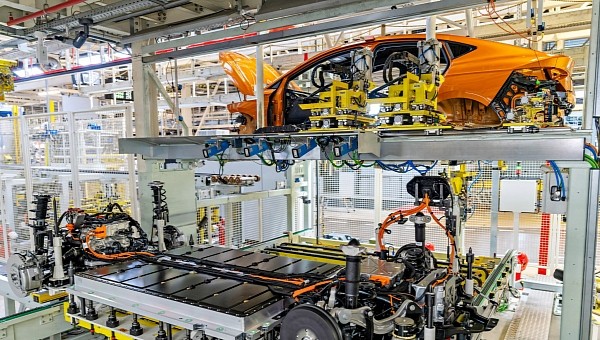The consensus right now is that the chip shortage is slowly but surely fading away, with industry analysts expecting the world to return to pre-2020 inventory levels by the end of the year.
In theory, this means that carmakers would no longer struggle with the lack of semiconductors, eventually being able to build vehicles and ship them to customers in a timely manner.
Enter Skoda.
At a time when everybody seems to dream about the end of the chip shortage, the Volkswagen brand is struggling with a severe lack of semiconductors. And due to the disruptions the chip crunch has caused in its operations, Skoda had no other option than to temporarily stop production of several models.
The temporary production halt was revealed by trade unions, who also confirmed that Octavia, Enyaq, Fabia, Scala, and Kamiq are all impacted by the production cut.
In theory, production should return to the normal pace in a few days, as the halt is only taking place this week.
The trade unions claim the current semiconductor inventory is once again very constrained. The first weeks of the year indeed witnessed a significant improvement in terms of chip supply, but Skoda is feeling the impact of the semiconductor crunch one more time.
While industry analysts believe the end of chip shortage is already on the radar, carmakers aren’t that optimistic. Several companies have already warned that the semiconductor struggles would continue this year, with the most pessimistic forecasts anticipating supply chain problems in 2024 as well.
General Motors, for instance, doesn’t expect the chip situation to come to an end this year. The company’s CEO recently said that 2023 is going to be a challenging year as far as chips are concerned, warning that the shortages could also continue beyond this year.
Toyota, which has recently announced its production target for 2023, emphasized that its estimates could eventually suffer a 10 percent drop due to the same chip problem. The company explained that the current challenges, including the health crisis and rising inflation, make it impossible to release an accurate forecast, especially as vehicle production could be slowed down in the coming months.
In the meantime, chipmakers are seeing their order books getting empty once again, especially following a massive drop in demand for electronics like PCs and phones. The automotive market is the one spearheading demand in the chip industry for the time being, but it’s believed the necessary inventory wouldn’t be ready until 2024, at the earliest.
Meanwhile, Skoda’s production suspension shows the chip shortage isn’t over, so the automotive world should brace for another difficult wave of the crisis, with more carmakers likely to come up with similar announcements sooner rather than later.
Enter Skoda.
At a time when everybody seems to dream about the end of the chip shortage, the Volkswagen brand is struggling with a severe lack of semiconductors. And due to the disruptions the chip crunch has caused in its operations, Skoda had no other option than to temporarily stop production of several models.
The temporary production halt was revealed by trade unions, who also confirmed that Octavia, Enyaq, Fabia, Scala, and Kamiq are all impacted by the production cut.
In theory, production should return to the normal pace in a few days, as the halt is only taking place this week.
The trade unions claim the current semiconductor inventory is once again very constrained. The first weeks of the year indeed witnessed a significant improvement in terms of chip supply, but Skoda is feeling the impact of the semiconductor crunch one more time.
While industry analysts believe the end of chip shortage is already on the radar, carmakers aren’t that optimistic. Several companies have already warned that the semiconductor struggles would continue this year, with the most pessimistic forecasts anticipating supply chain problems in 2024 as well.
General Motors, for instance, doesn’t expect the chip situation to come to an end this year. The company’s CEO recently said that 2023 is going to be a challenging year as far as chips are concerned, warning that the shortages could also continue beyond this year.
Toyota, which has recently announced its production target for 2023, emphasized that its estimates could eventually suffer a 10 percent drop due to the same chip problem. The company explained that the current challenges, including the health crisis and rising inflation, make it impossible to release an accurate forecast, especially as vehicle production could be slowed down in the coming months.
In the meantime, chipmakers are seeing their order books getting empty once again, especially following a massive drop in demand for electronics like PCs and phones. The automotive market is the one spearheading demand in the chip industry for the time being, but it’s believed the necessary inventory wouldn’t be ready until 2024, at the earliest.
Meanwhile, Skoda’s production suspension shows the chip shortage isn’t over, so the automotive world should brace for another difficult wave of the crisis, with more carmakers likely to come up with similar announcements sooner rather than later.














